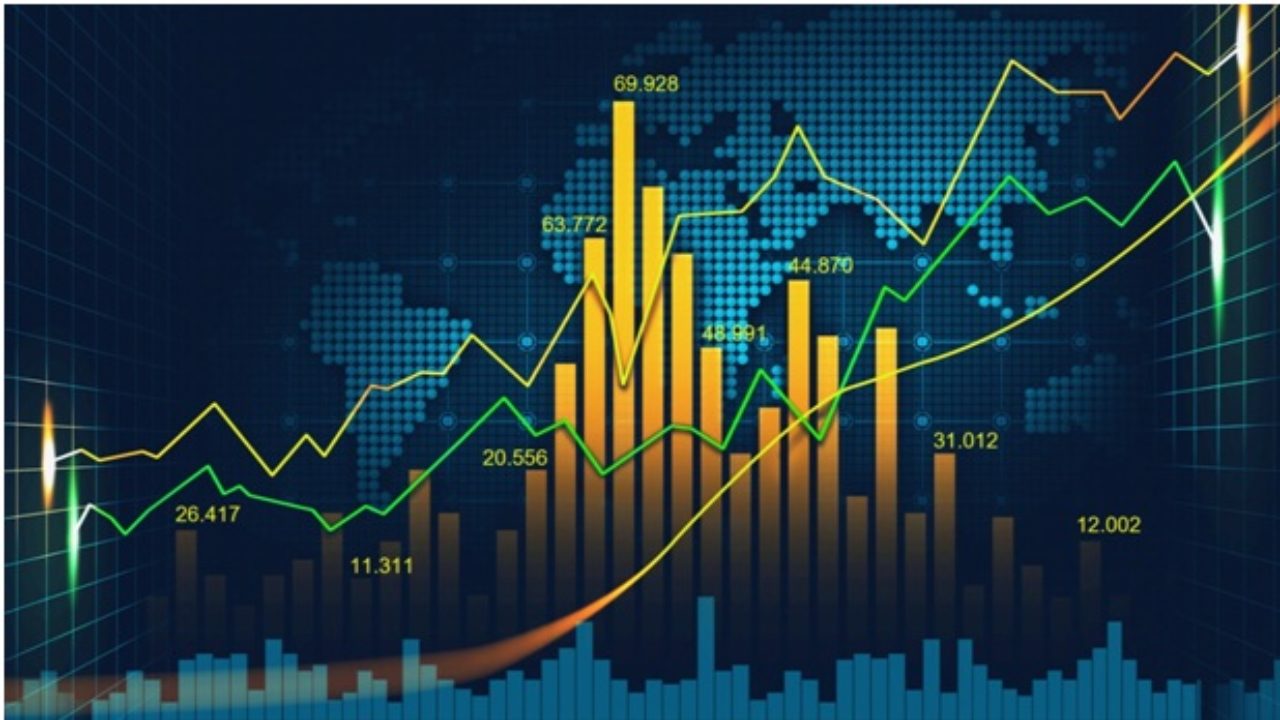Expert Strategies for Navigating Stock Market Volatility
The stock market is always moving, and everyday market indexes are taking away profits or adding losses. While the S&P 500 or other indexes may stay under 1% of fluctuation during calm periods, there may be some sudden shifts in prices at other times.
This is known as volatility. Increased volatility might be equated with market turmoil, but it is part and parcel of good long-term investing.
Understanding the Stock Market
The stock market, alternatively known as the share market or stock exchange, is a market where a collection of individuals or entities can buy and sell shares of publicly traded companies.
Investors trade with these shares, which are listed on a stock exchange. In other words, the stock market is a crucial element of a free-market economy where buyers and sellers can trade shares of publicly owned companies on the open market.
Publicly traded shares refer to those stocks that can be purchased and sold by private investors. Since they have a significant market capitalization, they can be traded at highly liquid levels. On the other hand, when private stocks subject to various market cap criteria are sold in private transactions and not on a public stock exchange, they are known as private shares.
A typical stock market is often divided into two separate markets: the primary market and the secondary market. In the primary market, the stock exchange allows investors to trade shares for the first time. These transactions often result in shares of stock being financed by the issuing company.
On the other hand, in the secondary market, the stock markets permit the trade of stocks that have already been issued. The secondary market is the most popular stock market.

Volatility in the Stock Market
Volatility refers to how prices either rise or fall and at what frequency they occur. The regularity and intensity of these price movements are used as measures of market volatility. It is calculated as the annualized standard deviation of the stock’s returns for a given interval.
Volatility in this context refers to the extent to which the stock's price may be expected to fluctuate more or less unpredictably in the future.
Technical traders, whose trading strategies focus on exploiting exclusively the history of the stock's price use the historical volatility to forecast future volatility.
When the stock's price rapidly swings both to the highs and lows in a short period of time, then the stock is said to be very volatile. On the other hand, when the stock price slowly moves or when the price stays mostly flat, then the stock is considered to be less volatile.
Historical volatility analyzes a sequence of past market prices to calculate the stock's future volatility. However, this measure doesn't adequately help in forecasting future stock prices since, historically, stock prices have no actual correlation with price in the future.
Factors Contributing to Stock Market Volatility
There are several factors that can result in volatility in the stock market, with some of the major ones mentioned below.
●Political and economic factors
Trade agreements and potential laws and regulations enacted by the government can affect the industries and economies that they address. As a result, investors may react, causing stock prices to fluctuate.
The government and its representatives can cause further uncertainty, leading to price movements, by offering comments or addressing the public.
●Economic Indicators
Economic indicators in the form of monthly jobs, inflation, consumer spending, and GDP reports can provide hints about the economy’s strength. A robust economy usually suggests a bullish stock market. Additionally, when a report misses estimates, the stock market is generally more volatile.

●Sector and Industry Performance
Volatility within sectors can occur through industry-specific occurrences. For instance, particularly harsh weather in key oil-producing areas can increase the cost of oil, impacting energy distribution company stock prices.
Additionally, when the government has tighter regulations in place, compliance and employee costs might become so high that businesses in the industry are unable to grow their earnings.
●Company Performance
Individual company performance is often to blame for decreasing stock prices. Good news, such as strong earnings and successful product launches, can entice investors to buy, which pushes stock prices higher.
Bad news, such as product recalls, data breaches, or negative CEO behavior, can lure investors to sell shares, which will send stock prices falling. The performance and prospects of large companies can also dictate broad market movements.

How is volatility in the stock market an opportunity for traders?
Volatility is not undesirable in itself, and highly volatile markets can also provide investors with opportunities to benefit from market movement. Market declines can be seen as particularly suitable buying opportunities by investors who are in for the long term.
By buying stocks at lower prices, investors are reducing the average purchase price per share, thereby increasing the future return potential.
Rapidly rising stock valuations, on the other hand, can yield an opportunity for profit. The income generated by the sale of a security can be reinvested in areas where even more revenue is expected. If the buy was made during a period where markets were priced with a substantial margin of safety, this can be a real recipe for a good investment return after all.
For instance, in the year following the 2008 financial crisis, the U.S. stock market showed one of the best returns since the Second World War.
Investors who take a long-term approach tend to be less concerned about market volatility, knowing that it is temporary, and stay focused on their long-term investment goals. Market timing is very difficult to execute and more often results in buying high and selling low, magnifying losses during turbulent times.
Conclusion
The most important thing to remember is that markets move, and it is normal for them to go up and down. Selling an investment based on this fact is not a winning strategy in all circumstances. Understanding volatility and why it occurs will help traders take advantage of the chances it presents.
OTHER NEWS
-
- Top Accredited Online Colleges You Should Consider
- By Prodosh Kundu 02 Sep,2024

-
- If you had Enough Money, Which Country Would you buy a House in?
- By Little Grapes 24 Apr,2023

-
- The Pros and Cons of Personal Loans and how to get one
- By Little Grapes 24 Apr,2023

-
- Who is the Primary Lender When Applying for a Home Loan? These Points are Important!
- By Little Grapes 24 Apr,2023

-
- The 4 Stages in the Forex Market That Traders Should Be Aware of
- By Prodosh Kundu 15 May,2024

-
- No Need to Worry About Buying a Home in the US, you Just Need to Know These Steps!
- By Anna 24 Apr,2023

-
- The Importance of Buying Auto Insurance!
- By Little Grapes 24 Apr,2023

-
- How to Successfully Negotiate a Real Estate Commission and Save Money?
- By Wendy 24 Apr,2023

-
- The Power of Loans: Empowering Your Financial Journey
- By Little Grapes 07 Aug,2023

-
- Top Credit Cards for Students: Rewards and Building Credit History.
- By Wendy 24 Apr,2023

-
- How to Choose the Right Savings Account for Your Needs
- By Prodosh Kundu 07 Aug,2024

-
- Strategies to Truly Hassle-Free Passive Real Estate Income
- By Kevin Mathenge 24 Apr,2024

 1
1 1
1